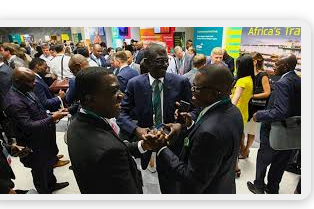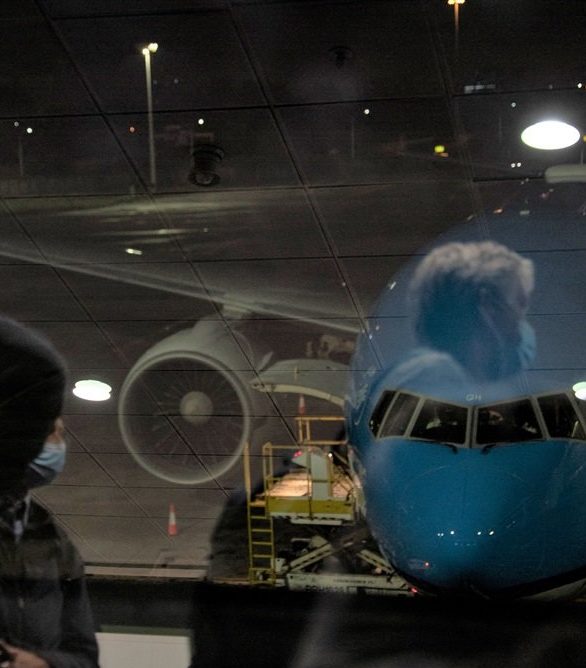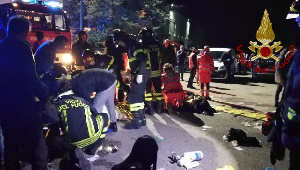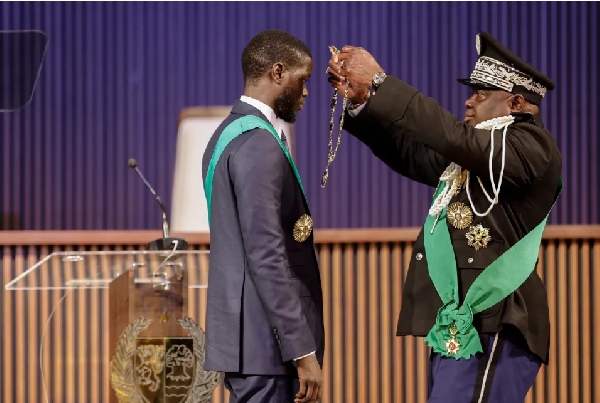News Africa
Nigeria Brinks at Russia’s Investment

As part of efforts to connect Russia with Nigeria and to lure potential Russian investors and business people to Nigeria and vice versa, a business lecture platform “Doing Business with Nigeria” was created in November. Its primary aim is to get the Russian business community to understand the economic and investment potentials as well as the current market conditions in Nigeria.
In a brief interview, Rex Essenowo, a business economist and a member of Board of Directors & CEC of the Nigerian Diaspora Organisation, Europe, talks about the first business lecture held late November and the future perspectives of overall Nigeria-Russian economic cooperation to our media executive Kestér Kenn Klomegâh. Here are the interview excerpts:
As an insider, do you consider the business lecture on Russia and Nigeria important?
Rex Essenowo (RE): First and foremost, the lecture was a critical action and a call to active duty for Russian companies that participated in the event, as it gave the inside-out of both the political economy of the Nigerian state, as well as presentation of complex market research that is very strategic for potential investors and business people from Russia.
On the other hand, we plan to systematize as an online auditorium based in furtherance of developing bilateral economic relationship between the two countries. We strongly believe that our economic diplomacy and partnerships could be raised to appreciably new levels and it is cost-effective for us. Obviously, there has been poor or inadequate information on the vast investment opportunities in both great countries and it is something we have to correct now using new forms of technology. The first lecture vividly showed evidence that this is really one instrument to promote ties and to strengthen the multifaceted partnership between the two regions.
What were the popular sentiments among the speakers about developing business ties between the two countries?
RE: The popular sentiments among the speakers were the difficulties in facing the big players on the ground, I mean, traditional western investors, growing interest of Asian tigers in Africa, China’s saturated model of doing business in Africa and the need for Russian companies to explore the long-term and sustainable friendship by creating mutual beneficial partnership. Fair enough, the spotlight was on corruption and security as well as how to manage the risk.
Concretely, what business and investment directions were highlighted during the discussion? Do you feel the speakers underlined the current competitive business cum investment environment in Nigeria?
RE: The critical focus was on agriculture, energy, oil and gas, telecommunications, healthcare, transport, financing, marine exploration, aerospace and some other areas where Russian technology can have a comparative advantage. The presenters made analysis and good points intended to deepen understanding of the market structure. There are other salient issues including legal framework and how Russian investors should adapt to new conditions and realities on the ground. As the first lecture of its kind, it is a work in progress. We have consistently, if not aggressively, to [re]shape a few things through online business lectures and programmes.
What would you say in terms of comments as these spheres have been on the table over the years?
RE: With Covid-19 devastating the global economy, sanctions from the West and internal meltdown of business activities in Russia, the search for new markets and investment opportunities to boost trade between Russia and Africa; it is clear that Nigeria provides the best combination of essential components for a big time and long-term trade relations. Understandably, Nigeria is not a traditional market for Russian producers and investors, but it opens a wide window and the door to the real African market, beginning with a formidable Economic Community of West African States (ECOWAS) regional market, which I pointed out several years back.
By the way, how would you assess the current level of engagement in Russia with Nigeria, or Russia is still dating Nigeria?
RE: Nigeria is an economic powerhouse in the West African region. As it is widely known, Nigeria is one of Africa’s fastest-growing economies and it boosts the largest population. Nigeria’s population estimated at 210 million people this mid-year, according to United Nations data. Nigeria’s population is equivalent to 2.6% of the total world population.
The current level of engagement between Russia and Nigeria is still very low, considering the combined size of the population and huge consumer market potentials of both countries, but there is more room for improvement, which I personally mentioned during the discussion. The market requires all kinds of consumer products and services.
Furthermore, Russia has expressed deep interest in Nigeria, highly pledging to build nuclear power plants, petroleum pipelines, railways and infrastructure. They keep going forth and back during these several years. Unfortunately, these corporate plans have not been realized, either Russia sees the instability or neo-colonialism as factors impeding its investment there. Then there is also the question of project financing and legal aspects that have to be mutually resolved.
What are your suggestions about future perspectives?
RE: As relates to future perspectives in the first place, I have no doubt that engaging the Diaspora creates stronger bridges to facilitate and improve trade relations. Considering that every country has its own challenges, we must not forget the social aspects of collaboration, in which the government, regional and local communities play very important roles.
In addition, the success of every investment or project speaks volume. As we push forward with the government to create enabling environments for the free flow of FDI, we in NIDOE are well-positioned and backed up with relevant agencies, like the Embassies, Nigerian Diaspora Commission (NIDCOM), Nigeria Investment Promotion Commission (NIPC) and so forth for the win-win cooperation; while in Russia, our strategic partners like the Russia-Nigerian Business Council, Business Russia and the Institute of African Studies are also pushing harder to the core to bring more business executives on board. We are already talking about a Russian Trading House, Show Room & Pavilion in Nigeria.
Our part is to ensure sustainability by making partnerships more reliable, workable and long-termed. We still have skyline hope and optimism for building back better relations between the two countries, and most importantly within the context of the Declaration “On the Principles of Friendly Relations and Partnership between the Russian Federation and the Federal Republic of Nigeria” signed between Russia and Nigeria, and the several bilateral agreements that was signed between Russia and Nigeria by both leaders at the first and second Russia-Africa Summits held respectively in Sochi and in St. Petersburg.
Source: Thepressradio.com|Kestér Kenn Klomegâh





